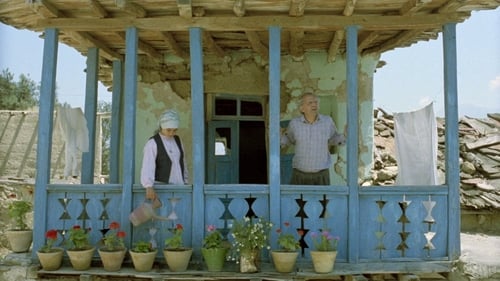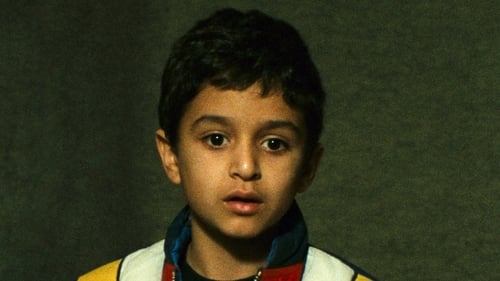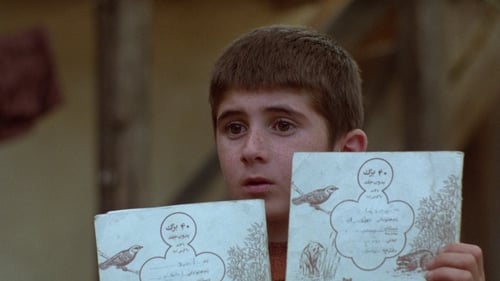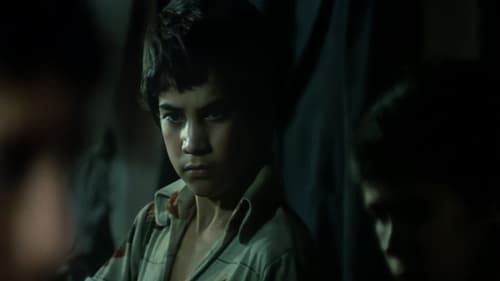
Sound
An exquisitely hand-painted journey following the dreams of a young girl whose dreams fill with animals as a way to explain her world.

Sound Re-Recording Mixer
Djomeh is a young Afghan man who has come to live in Iran because of family trouble. Working as a milk boy, he encounters discrimination from the Iranian villagers and disdain from Habib, a fellow Afghani to whose trust Djomeh was given. The only person who shows any friendliness to him is his employer, who Djomeh asks to intercede for him in asking a woman from the village for her hand in marriage.

Editor
테헤란 시 외곽의 톨게이트. 라디오에선 끊임없이 지진의 비극이 흘러나오고 있다, 집과 가족을 잃은 많은 사람들이 구호물자를 기다리고 있으며. 부모를 잃은 수많은 아이들을 입양해줄 것을 호소한다. 1990년 이란을 할퀸 대지진 소식에, 황급히 돌아온 압바스 키아로스타미. 그는 <내 친구의 집은 어디인가>에 출연했던 소년들의 생사를 확인 못해 초조하다. 하지만 코케마을로 가기 위한 도로는 자동차의 행렬로 꽉 막혀있고 길은 어렵기만 하다. 절망이 휩쓸고 간 자리, 그 아이들은 어떻게 되었을까?

Sound Mixer
(내 친구의 집은 어디인가)에서도 드러나지만 키아로스타미는 아이들을 카메라 앞에 세우는 데 능숙하다. 카메라가 아이들의 경계심을 허물며 한발 다가설 때 키아로스타미의 시선은 아이들과 완전히 동화된다. 비밀은 그가 60년대 말부터 카눈 청소년지능개발 산하 영화제작소에서 아이들에 관한 수십편의 기록영화를 만들었다는 사실과 관련깊다. 키아로스타미는 이란의 어린이들과 대화하는 법을 알고 있으며 그들의 눈높이에서 문제에 접근한다. 성인의 세계에서 대수롭지 않게 봐넘겨온 사건들이 어린이의 시점에선 너무 절실한 것이다. 친구의 공책을 돌려주기 위해 길을 떠난 아이의 심정을 담은 (내 친구의 집은 어디인가)가 그렇게 태어난 것처럼 다큐멘터리 (숙제)도 어린이들이 겪는 어려움을 함께 나누려는 착한 마음이 배어나오는 영화다. (숙제)는 형식면에서 대단히 단순한 다큐멘터리다. 키아로스타미는 이란의 어떤 초등학교 학생들을 한명씩 카메라 앞에 세우고 질문을 한다. "왜 숙제를 안 했는가?" "숙제가 너무 많지는 않나?" "숙제와 만화 중 무엇이 더 좋은가?" "장래 희망이 무엇인가?" 등. 부모가 문맹인 아이들은 받아쓰기를 위해 멀리 친척집을 찾아가기도 하고 집안의 잔부름을 하다 숙제를 못하기도 한다. 수많은 아이들의 증언을 통해 키아로스타미는 아이들이 느끼는 숙제에 대한 생각을 보여준다. 아이들의 맑은 눈망울을 보노라면 그것이 각 가정의 특수한 상황에 의한 것이든 교육제도의 문제점이든 대단히 절실하다는 걸 느낄 수 있다. TV에서 매일 보여주는 어떤 캠페인보다 강한 설득력으로 아이들에 대한 관심을 환기시키는 것이다.

Sound Mixer
Famed actress Susan Taslimi plays three roles here: Kian, who doubts her identity; Vida, the twin sister, a self-assured artist; and their mother, who gives up one child out of fear of poverty, then deprives the other of affection because she deeply regrets the child whom she has abandoned.

Sound Editor
공포의 숙제 검사 시간이 돌아왔다! 이란의 북부 지방, 코케 마을의 한 초등학교. 신나게 떠들던 아이들은 선생님의 출현으로 순간 긴장에 휩싸인다. 바로 숙제 검사 시간. 네마자데는 근심 어린 표정으로 선생님의 동정을 기다린다. 어제 저녁을 사촌의 집에서 보내는 바람에 숙제를 공책에 하지 못한 것이다. 결국 선생님의 꾸중을 들은 네마자데는 울음을 터트리고 짝꿍인 아마드의 마음을 애처롭게 만든다. 방과 후 집에 돌아온 아마드는 숙제를 하기 위해 가방을 여는데 똑같은 모양의 공책이 두 권! 아뿔싸! 실수로 네마자데의 공책을 가져온 아마드의 눈앞에는 선생님께 추궁 당하고 훌쩍이던 친구 네마자데의 모습이 어른거리기 시작한다. 아마 내일 선생님은 네마자데를 창밖으로 던져 버릴 것이다. 결국 착한 아마드는 친구의 공책을 집어들고 집을 나선다. 네마자데가 산다는 마을 포시테를 향해...

Sound Recordist
Kiarostami presents two cases for talking heads to evaluate in terms of morality, rights and responsibilities. Case One: Your son is in class, sitting in the back row. His teacher is writing on the board. A restless student in the back row makes a lot of noise. Not knowing who the culprit is, the teacher makes all the children sitting in the last two rows stay outside of the class until the weekend, unless they tell him who made the noise. After a few days spent outside of the classroom, your son relents and tattles on the boy who made the noise, so he can go back in and continue learning. Was he in the right? Case Two: The other students from the back row wait out the rest of the week outside of the class, before returning. Were they in the right?

Sound
A woman orders a suit from a tailor for her young son to wear to her sister's wedding. The tailor's apprentice, together with two other teenage boys who work in the same building, devise a plan to try on the suit at night to see what it feels like.

Sound
The boys of the neighborhood are dividing into two groups to run a kite. The first groups are watching the kite happily but the other group try to take it down. The kite is flew away but the sorrow of that only leads the boys of the two groups to befriend each other.







